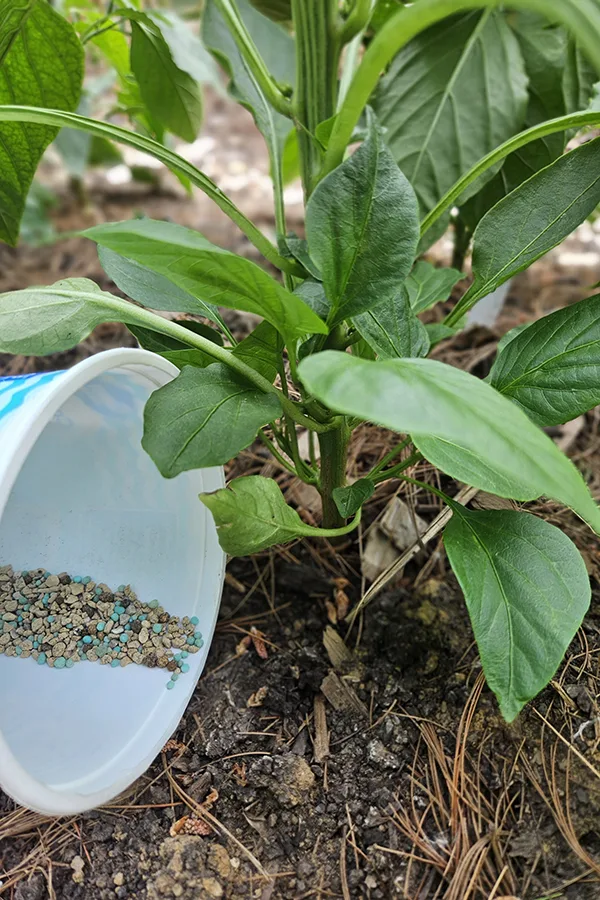Premier Fertilizers for Peppers: Enhance Your Harvest High Quality
Premier Fertilizers for Peppers: Enhance Your Harvest High Quality
Blog Article
Organic Vs. Synthetic Fertilizers: Which Is Best for Nurturing Healthy Pepper Plants?
In the world of supporting healthy and balanced pepper plants, the choice in between natural and synthetic plant foods stands as a crucial decision with far-reaching effects. While both options purpose to supply important nutrients to support plant development, the nuances of their impact on the soil, plant health and wellness, and the atmosphere stimulate an argument that echoes throughout the horticulture neighborhood. Understanding the distinct benefits and potential mistakes of each fertilizer kind is essential for pepper cultivators seeking to optimize their yields while maintaining an eco-conscious and lasting approach.
Advantages of Organic Fertilizers
Organic fertilizers use an environmentally-friendly and lasting approach to beneficial pepper plants, providing vital nutrients without the use of synthetic chemicals. These all-natural plant foods are acquired from organic resources such as compost, manure, bone dish, and algae, promoting soil health and biodiversity. Unlike synthetic fertilizers, natural options release nutrients slowly, making certain a steady and well balanced supply for pepper plants to flourish.
One substantial benefit of natural plant foods is their capacity to improve dirt framework and water retention. By boosting dirt wellness, natural fertilizers advertise valuable microbial activity, which helps in nutrient uptake by pepper plants. Additionally, natural plant foods minimize the risk of chemical run-off, protecting water sources from pollution and guarding the setting.
In addition, organic fertilizers add to lasting soil fertility by promoting the development of valuable dirt organisms. These microorganisms assist break down raw material, launching nutrients in a kind that is conveniently available to pepper plants. best fertilizers for peppers. By fostering a healthy and balanced dirt environment, organic plant foods sustain lasting pepper farming methods that profit both plants and the atmosphere
Disadvantages of Artificial Plant Foods
Artificial plant foods, in contrast to their organic counterparts, pose different negative aspects when used to nurture pepper plants, impacting both plant health and wellness and environmental sustainability. One major drawback of synthetic plant foods is their propensity to leach nutrients from the soil promptly.
Moreover, the overuse of artificial plant foods can add to water contamination. Excess plant foods not soaked up by plants can get rid of into water bodies, bring about eutrophication, where algae flowers diminish oxygen degrees in the water, harming water life. Furthermore, synthetic fertilizers are commonly stemmed from non-renewable sources, such as fossil fuels, adding to carbon discharges and ecological deterioration during their manufacturing.
Nutrient Absorption Contrast
Reliable nutrient absorption plays an important role in the general health and growth of pepper plants. When contrasting natural and artificial plant foods in terms of nutrient absorption, natural fertilizers have the advantage of giving an extra balanced and slow-release source of nutrients (best fertilizers for peppers). Organic plant foods have a range of macro and micronutrients that are not just advantageous for the plants however likewise advertise healthy soil microbial activity, which assists in nutrient uptake. On the other hand, artificial fertilizers often give a quick release of nutrients, which can result in leaching and runoff, leading to lower nutrient absorption rates by the plants.
Moreover, natural fertilizers enhance dirt framework and water retention capability, enabling pepper plants to access nutrients more successfully. This improved soil high quality helps with origin growth, allowing more tips here much better nutrient absorption. Artificial fertilizers, although at first improving plant growth because of their high nutrient focus, might hinder long-lasting nutrient absorption by derogatory soil health with time.
Environmental Influence Considerations

On the other hand, artificial fertilizers, although frequently more focused and promptly offered to plants, can have damaging impacts on the setting if not used effectively (best fertilizers for peppers). Their manufacturing requires high power inputs, bring about greenhouse gas emissions and adding to climate modification. Furthermore, the drainage of excess artificial fertilizers can pollute water sources, causing eutrophication and hurting marine environments.
Best Fertilizer Practices for Peppers
To achieve this, it is vital to comply with finest fertilizer methods tailored to the particular needs of pepper plants. One essential method is to carry out a soil test before using any kind of plant foods.
An additional vital technique is to feed pepper plants at the ideal time. Normally, peppers gain from getting top article plant food at growing and after that once again when they start to blossom. Over-fertilizing can cause vitamins and mineral inequalities and harm the plants, so it is vital to comply with recommended application rates.
In addition, picking a well balanced plant food with an NPK proportion that fits pepper plants' demands is essential. Organic fertilizers, such as compost or manure, can be excellent choices as they release nutrients slowly and improve soil structure over time. Nevertheless, synthetic plant foods can provide a quick nutrient boost when needed. Eventually, combining synthetic and natural plant foods deliberately can aid support healthy pepper plants while reducing environmental impact.
Conclusion

Organic plant foods offer an environmentally-friendly and sustainable approach to nourishing pepper plants, giving necessary nutrients without the use of artificial chemicals. Unlike artificial fertilizers, organic alternatives release nutrients slowly, making sure a consistent and well balanced supply for pepper plants to flourish.
Synthetic fertilizers, in comparison to their organic equivalents, present various negative aspects when made use of to nurture pepper plants, affecting both plant health and environmental sustainability. When contrasting synthetic and organic fertilizers in terms of nutrient absorption, organic fertilizers have the benefit of supplying an extra well balanced and slow-release resource of nutrients.Furthermore, organic fertilizers enhance soil structure and water retention capability, enabling pepper plants to gain access to nutrients extra successfully.
Report this page